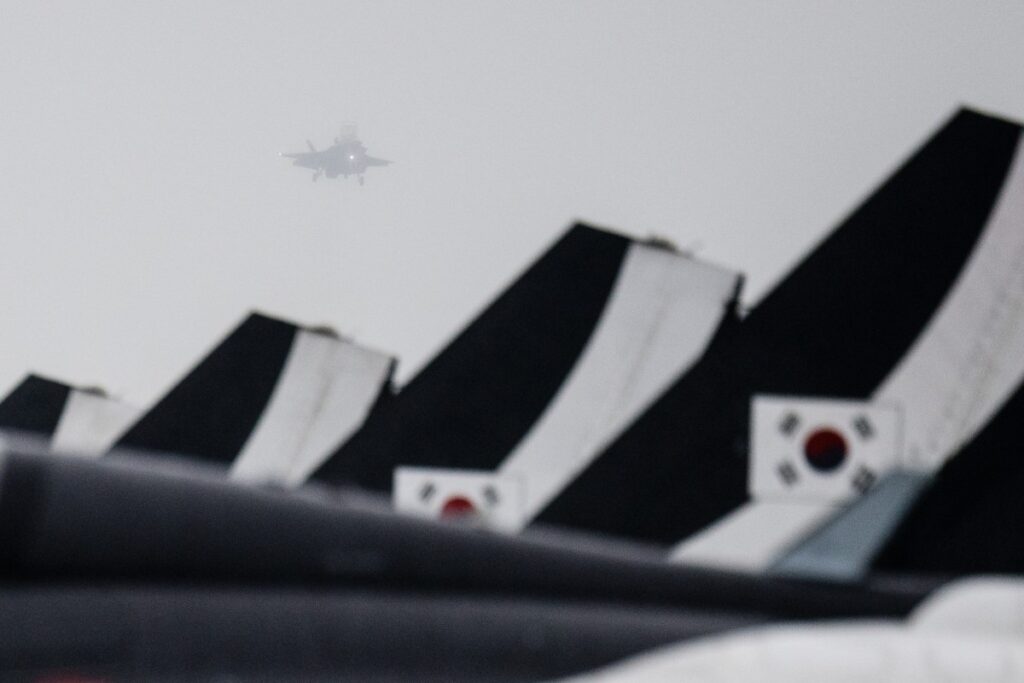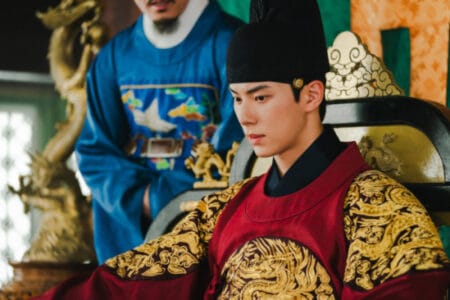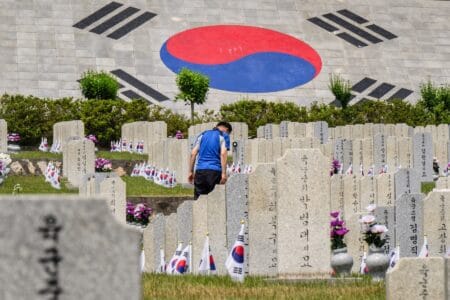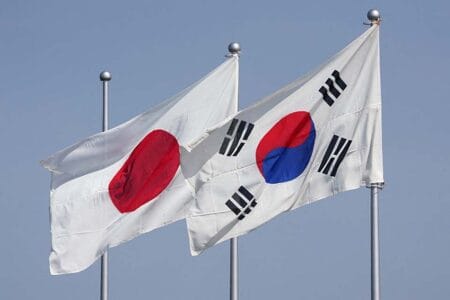July 11, 2025
SEOUL – Amid Washington’s pressure for a tariff hike on most South Korean goods, the presidential office appears to be open to widening the scope of the tariff negotiations with the US by adding elements that could reshape the two countries’ alliance.
Signaling that the ongoing negotiations would not only encompass “tariff and non-tariff issues” but also other elements such as investment, purchases of US goods and regional security, National Security Adviser Wi Sung-lac said he “proposed that (Seoul) take a comprehensive stance in (the handling of) the package (deal).”
“Tariffs and non-tariff (issues) are important, but they are part of the bigger picture in the alliance between South Korea and the United States,” Wi told reporters at the presidential office Wednesday evening upon his return from a short trip to Washington.
Seoul is engaged in “ongoing negotiations on the entire alliance, including trade, investment, purchases of US goods and even security,” Wi also said, adding, “Wouldn’t it be appropriate to negotiate with an eye on the end state of the alliance?”
When asked whether transferring wartime operational control of South Korea’s military from the US to South Korea, or drawing down US forces stationed in South Korea could be included in the “comprehensive” talks in which Washington ramps up the pressure on Seoul to spend more on defense, Wi did not rule out the possibilities.
“In terms of the security consultation, many of the things (you mentioned) were among the discussion topics, along with defense spending. The discussions are likely to drag on. They may last longer than the other discussions,” Wi said.
Regarding the likelihood of the US giving South Korea the authority to lead its own defense in case of a North Korean invasion through the transfer of wartime operational control as part of the broader negotiations, Wi said, “I don’t know if that issue will come up in the security consultations. We’re not there yet.”
Transferring wartime operational control was one of liberal President Lee Jae Myung’s campaign pledges, as the process has long been stalled. In 2014, South Korea and the US tentatively agreed on a conditional transfer if South Korea’s military capabilities met US standards. Before the 2014 agreement, they had previously set the timing of doing so by late 2015. A new date for the operational control transfer has not been suggested since.
An expert in Seoul said the government appears to be desperate for progress in the stalled US tariff talks, and is therefore attempting to leave core security issues open for renegotiation.
“I’m concerned because it seems like Seoul is using bigger bait,” said Lee Shin-wha, professor of political science and international relations at Korea University.
On Wednesday, a report by US think tank Defense Priorities suggested that US troops stationed in South Korea be slashed to about 10,000 from the current 28,500, given the restricted role of the US Forces Korea — countering threats from North Korea, not elsewhere — amid China’s growing military power and the lack of US posture in Asia to counter it.
According to the report, Seoul has not granted the US unrestricted contingency access to use its bases for operations elsewhere in the theater during a conflict, so that forces stationing in South Korea and dedicated to countering North Korea threats might be sidelined in case of a regional war.
“From our perspective, North Korea is an enemy, but from Trump’s perspective, it is not a foe but rather a counterpart for dialogue,” Lee of Korea University said, adding Seoul’s patience is key in dealing with the Trump administration over tariffs and security-related matters, among others, before the Lee-Trump summit materializes.
On Thursday afternoon, President Lee convened a National Security Council meeting in Seoul for the first time since his inauguration on June 4.
According to the presidential office on Thursday, Lee was briefed on the security policy blueprint for the second half of this year. When asked whether the NSC meeting touched on the US tariff uncertainties, presidential spokesperson Kang Yu-jung at a briefing declined to elaborate what was being discussed, but said the meeting navigated the measures to secure South Korea’s national interest.
consnow@heraldcorp.com







